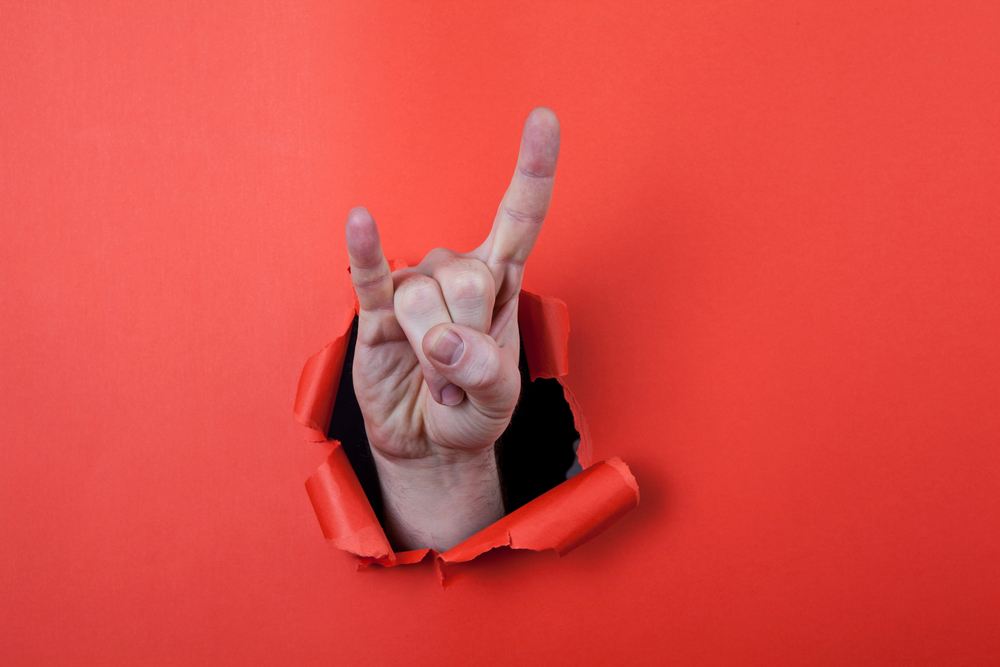30 American Norms That Annoy The Rest Of The World
The United States is a vast country with various cultures and traditions. But for the most part, we have a way of doing things that non-Americans apparently find offensive—and sometimes even annoying.
Here’s 30 American norms that you probably shouldn’t take with you when traveling abroad.

Calling The United States “America”
As funny as this one may sound, some people get really annoyed when Americans refer to the United States as “America” while traveling abroad.
In South America, claiming you’re from “America” rather than the “United States,” is seen as being politically incorrect, as it implies that only the US should be considered America, and that South America is unworthy of the title.
Wearing Shoes Indoors
Keeping your outdoor shoes on when you go inside your home may not seem alarming in the United States, but in many other countries this can be seen as disrespectful.
For many countries across Europe and Asia, as well as our Canadian neighbors, wearing your outdoor shoes inside is often considered unhygienic.
Bull Horns
In most of North America, raising your first and pinky finger to resemble bull horns is usually a symbol to mean “rock on,” and is commonly seen at musical events.
But in some countries—like Italy, Spain, Portugal, and parts of South America—this hand symbol is used to indicate to a man that his wife is being unfaithful.
Hand gestures in general are said to be an “annoying American trait".
Eating With Your Left Hand
In the United States, it doesn’t really matter which hand you use to eat with, even if you’re skipping the utensils. But in India, and many parts of the Middle East, a person’s left hand is generally used to clean themselves up in the washroom—making it not suitable to be used at the dinner table.
While this one isn’t annoying, it is shocking for foreigners to witness.
Tipping
In the United States, not tipping your server is a big deal and will oftentimes be considered rude. A tip, in nearly any service provided, is expected. But in many other countries, namely Korea and Japan, tipping indicates something else.
In these countries, servers are paid a standard wage. Any extra given on top of that sends the message that you think the workers need more incentive to do their job.
When foreigners come to the US, they find the extra tipping to be inconvenient.
Hands In Your Pockets
In the US, what is deemed “offensive” is a list that never stops growing. One way to avoid offending others with hand gestures is to keep your hands in your pockets. However, doing this in other countries will actually have the opposite effect.
In many Asian countries, specifically Japan and Korea, having your hands in your pockets while out in public is seen as a sign of arrogance—and is a gesture deemed disrespectful by locals.
Taking The Back Seat In A Taxi
In the United States, the front seat of a taxi is usually seen as the driver’s domain, and is only used when there are no back seats left available. Also, in the US, the back seat of a taxi is deemed safer these days.
But if you’re in Scotland, Australia, New Zealand, the Netherlands, or parts of Ireland, you’ll want to jump in the front. Sitting in the back is considered rude.
Not Finishing Your Food
In most of North America, you are not expected to finish every last piece of food on your plate if you are full—not in today’s world, anyway. But did your grandma ever have the rule where you couldn’t get down from the table until your food was all gone?
That may be because in many cultures and countries, not finishing the food on your plate is not only considered wasteful, but it is seen as a sign that you did not enjoy your meal.
Finishing Your Food
Contrary to what you just read, in some countries, like China, the Philippines, Thailand, and Russia, polishing off your meal is actually a sign that you didn’t have enough and are still hungry.
So, really, it’s impossible to know.
Thumbs Up
In North America, giving a thumbs up to your friends across the room usually means you’re good/happy/satisfied. But in countries like Greece, Western Africa, the Middle East, or parts of Russia, giving someone the thumbs up is generally understood to mean “up yours".
Apparently, a lot of what Americans do is considered vulgar to foreigners.
Crossing Your Fingers
Along the same lines as thumbs up, crossing your fingers can have drastically different meanings depending on where you’re from.
In North America, crossing your fingers is usually seen as a way to wish for good luck. But in Vietnam, crossing your fingers is seen as a crude means of mimicking female genitalia.
 Natalya Erofeeva, Shutterstock
Natalya Erofeeva, Shutterstock
Laughing With Your Mouth Open
In the United States, most people are happy, and they show it by proudly laughing out loud, regardless of what they look or sound like.
But in parts of Japan, don’t get too excited. Laughing with your mouth open is considered rude. It’s best to cover your mouth with something when laughing.
It’s also one of the reasons many cultures find Americans to be “obnoxious” and “loud".
Wearing Certain Clothing Items in Public
In much of North America, it’s no big deal to go out in public in sweatpants, flip flops, or even wrinkly clothing. We truly embrace the “be yourself” culture here. But in many European countries, as well as Japan, a sloppy appearance is considered disrespectful, and you can even be refused service in some places.
Altering Your Meal
Once again, in most of North America, it is common to add condiments and seasonings to your meals—including those that are prepared for you.
But in foodie cultures, like France, Italy, Spain, and Japan, asking for ketchup, hot sauce, soy sauce, or salt is considered highly disrespectful to the person who prepared the meal for you.
Unless the condiment is already on the table, you should refrain from asking for it.
Customizing Restaurant Orders
Similar to adding salt and ketchup, customizing a restaurant order in the US is common. Asking to nix the onions, add cheese, or change the side dish is generally no big deal.
But in countries like Japan and Korea, and even some European countries, requesting a customized version of a menu item gives the impression that you’re not willing to try the food as it is naturally prepared—which can be an insult to the chef.
 ShotPrime Studio, Shutterstock
ShotPrime Studio, Shutterstock
Eating Anywhere That Doesn’t Serve Food
In North America, we mostly eat whatever we want, whenever we want—and wherever we want.
But in places like Rwanda and Japan, it is not acceptable to eat food anywhere that isn’t a restaurant, bar, or hotel.
That means no snacks on the bus, and no ice cream outside on your walk.
Refusing Food
In many countries, the role of the host differs. In North America, it is common to tell people to “help themselves,” essentially inviting them to feel right at home. At the same time, Americans will often refuse food, as a way to make it easier for their hosts.
But in countries like Lebanon, it is considered extremely rude to reject anything offered—especially food. And in some Asian cultures, the hands-off approach to hosting is uncomfortable.
Blowing Your Nose In Public
In the US, not too many people go the extra mile to excuse themselves before blowing their nose around others—though, to be honest, it wouldn’t hurt—and no one seems to mind all that much.
But if you dare blow your nose in the presence of others in countries like China, France, Japan, Saudi Arabia, and Turkey, it is not just considered rude, it’s also repulsive.
Asking About Employment
A common icebreaker in the US is asking, “what do you do?” to open up a conversation about the person, and possibly their interests.
But in some countries, this can be seen as classist and nosey. You might as well ask them how much their salary is.
Asking Personal Questions
Knowing what to ask someone in different cultures is hard because it varies so much. In most of North America, questions about a person’s marital status, salary, or age might be considered inappropriate.
But in some countries, like rural parts of Italy, you may find people are bolder with their curiosity, even going as far as asking why you’re still single.
Even still, Americans should avoid personal questions in most other countries, as it can be seen as impolite, especially if you do not know the person well.
Complaining About A Meal Or Service
In the US, it’s your right to request a change to something that isn’t quite what you wanted, especially in restaurants and hotels. If your meal, or the service, doesn’t meet your expectations, it’s okay to let them know.
And while this may be true in many other places, there are certain countries who consider this extremely bad manners. Instead, complaints should be discussed quietly, on the sly—and only when absolutely necessary.
Free Refills
Most places in North America are accustomed to being able to grab a (usually free) refill at most restaurants, but many other countries don’t follow suit.
In many places in Europe, free refills are unheard of. This includes water! Europeans have high standards when it comes to water, so most times, the water you are served in Europe is bottled water—and therefore does not come with free refills.
Some non-Americans seem to think Americans “always want something for free,” and the free refills don’t help that stereotype.
Going Shirtless At The Beach
In many parts of North America, men—and sometimes women—typically take off their shirts at the beach or pool. But in some parts of the world, this is socially unacceptable, and even unlawful at times. And this includes men.
In South Korea, ALL persons show up at the beach fully clothed, and stay that way. South Koreans are said to be the most modest when it comes to swimming.
Pointing
This one may be common knowledge, as even in some parts of North America traditional folk find pointing to be rude, especially when pointing at people.
But in countries like China, the Philippines, Japan, Indonesia, and Latin America, it’s a huge no-no.
 Roman Samborskyi, Shutterstock
Roman Samborskyi, Shutterstock
Turning Right On A Red Light
Traffic rules differ drastically around the world, this is no secret. But turning right on a red is mostly just a North American thing.
Many travelers coming to America may not know this, and sit at a red light waiting for the green. And in turn, many Americans may go abroad and wonder why no one is turning on the red.
Always be sure to learn the traffic laws where you travel!
Open Carry
Open carry is common in many parts of the United States. But aside from war-torn countries, this practice is not just unheard of in other parts of the world—it’s shocking.
Even our Canadian neighbors don’t share the same thoughts when it comes to open carry (or even concealed carry).
In many other countries, even owning a firearm is unheard of, especially for protection.
 Krakenimages.com, Shutterstock
Krakenimages.com, Shutterstock
Drinking Age
The United States takes underage drinking pretty seriously. So much so, that the legal drinking age is 21. This is drastically higher than in many other countries, and foreigners often have a hard time with this.
In Canada, the drinking age is 19. And if you think that’s young, in Germany you only have to be 16—or 14, if you have an adult with you!
Energy Drinks For Minors
In the US, there are no legal age requirements for energy drinks. Some places, like Suffolk County, New York, will refuse to sell to anyone under 18, but for the most part, energy drinks are easily accessible by anyone.
However, in many European countries, selling energy drinks to minors is prohibited.
Showing The Soles Of Your Feet
In North America, bare feet are a common sight, especially in the warmer climates and seasons. But in many other countries, showing bare feet—especially the soles of your feet—can be incredibly offensive.
In many parts of Asia—and many Arab, Muslim, Hindu, and Buddhist countries—showing the soles of your feet is a sign of disrespect, as they’re considered the dirtiest part of your body since they touch the ground.
Too Specific
Lastly, another common thing foreigners claim to be an annoying habit American’s make is getting “too specific” when asked where they’re from.
As with most places around the world, people don’t typically know detailed locations of countries they’re not from. And while we may think everyone knows about the US, you’d be surprised to find many non-Americans have no idea what our states are even called.
So, when an American is asked where they’re from and they answer with “Idaho,” foreigners can get immediately put off having to ask, “where’s that?”
Basically, don’t expect too many non-Americans to know much about the United States. And remember, they also don’t like when we call it America.

































